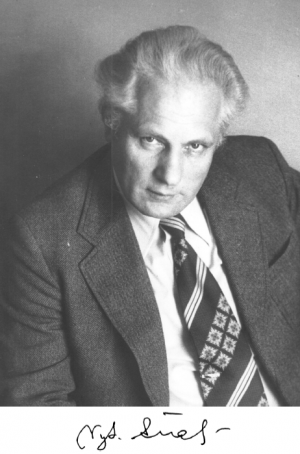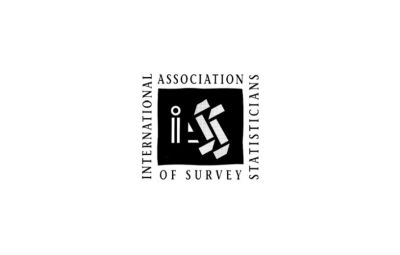
On 27 November 2009, Professor Vytautas Statulevičius would be celebrating his 80th birthday. Unfortunately, on 23 November 2003, his heart stopped beating. It is impossible to briefly describe in a preface the versatile, and wide ranging, activities and merits of such a talented and gifted person as V. Statulevičius. There were several special publications by the Institute of Mathematics and Informatics. Among them was a volume of selected papers of V. Statulevičius, with a rather detailed and complete description of his life and scientific achievements. Here our aim is to recall only the main facts from the biography, and to express our belief, and desire, that the memory of V. Statulevičius will remain with us for many years to come.
Vytautas Statulevičius graduated from the Department of Mathematics of Vilnius University in 1954 and wrote a dissertation on number theory under the supervision of Professor Jonas Kubilius. After graduating from university, by recommendation of J. Kubilius, V. Statulevičius went to Leningrad (now St. Petersburg) University to study probability theory under the supervision of the world-famous scientist J.V. Linnik. His first outstanding results in probability theory on Local Limit Theorems for nonhomogeneous Markov chains in 1955 were distinguished by the prestigious Leningrad University Award. (In the same year this award was given to the world-famous academician V. Fock). In 1958, at the International Mathematical Congress in Edinburgh, V. Statulevičius gave a talk based on these results. Later on, there were many more important awards and titles given to him. For the sake of brevity we shall not list them. We have mentioned the Leningrad University Award since it was a unique case in the history of Leningrad University. It was the first time that such an award was given to a first year PhD student.
After returning to Lithuania, for the rest of his life, V. Statulevičius worked at Vilnius University. Within this period he made numerous visits to other scientific centers around the world and left strong imprints in many areas. His important works on Asymptotic Methods of Probability Theory and Mathematical Statistics and his method of cumulants have made him world renowned. His lectures and talks in seminars studded with new ideas attracted young people. He was a supervisor for 35 PhD dissertations, and now among his students there are 10 full-fledged professors. (See the whole scientific school of V. Statulevičius)
In addition to all his proven capacities, V. Statulevičius was also a talented organizer. First of all, one can say that, to a great extent, the Institute of Mathematics and Cybernetics (now Institute of Mathematics and Informatics), was a creation of V. Statulevičius Also, worth mentioning are the Vilnius International Conferences on Probability Theory and Mathematical Statistics. These conferences began in 1973 and are held regularly every four years since then. All eight conferences (the 8th conference held in 2002) were organized under the supervision of V. Statulevičius. His enthusiasm and boundless energy were the main contributors to the great success of these popular gatherings of probabilists and statisticians.
We also remember well how active V. Statulevičius was in public life. He gave a lot of popular public lectures and was active in the ecological movement in the Baltic republics during the “perestroika” period in the Soviet Union. In the first democratic elections in Lithuania, V. Statulevičius was elected a member of the Supreme Council (Soviet, now the parliament), and was an active participant of those important events leading to the restoration of Lithuania’s independence in 11 March 1990.
It seems fitting to end this short preface by the words of J. Kubilius written in the preface to the volume of selected papers of V. Statulevičius: “A scientist’s life does not end with his death. His mark will stay for long in the history of Lithuanian science.”
V. Bentkus
V. Paulauskas




